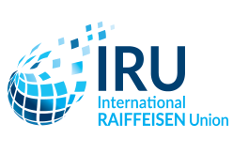The 60th session of the UN Commission for Social Development (UNCSocD60) , the advisory body responsible for the social development pillar of global development, took place largely online from 7 to 16 February 2022 at the UN Headquarters in New York. The UNCSocD60th side event on ‘Women cooperative warriors combat COVID-19 with sustainable gender and equity strategies: iconic case of Working Women’s Forum (India) and the Indian Cooperative Network for Women’ took place on February 11, 2022 and was hosted by the Working Women’s Forum and the IRU member organisation Indian Cooperative Network for Women (WWF – ICNW). IRU Board Member and President of WWF & ICNW Dr. Nandini Azad guided through this special virtual meeting. In her opening statement Dr Azad highlighted that the event is “a proud moment for WWF that in 26 years of its UN – consultative status (UNECOSOC), it is the only Cooperative Network globally to win this recognition.”

The event featured the input of several speakers. Ms Daniela Bas, director of the UN Department of Economic and Social Affairs addressed in her opening speech the fact that data from India shows that during the first lockdown in 2020, only seven per cent of men lost their jobs, compared to 47 per cent of women. She further pointed out that “on an average, they [women] spent more than ten times on unpaid domestic chores than men. Speaker Esim Simel, Head of the Cooperatives Unit at the International Labour Organization, Geneva, said, that in the face of the pandemic, women cooperatives stepped up to distribute relief measures and services. They had done awareness building and linked their members with health systems for treatment and care.
IRU Secretary General and Head of the DGRV International Relations Department Mr Andreas Kappes was invited to hold a video speech at this special occasion. In his speech, Mr Kappes addressed the challenging situation women were facing worldwide even before the Pandemic. He emphasized that “across the globe, women earn less, save less, hold less secure jobs, are more likely to be employed in the informal sector. They have less access to social protections. They are the majority of single-parent households. They provide most of unpaid care work.”
But COVID-19 significantly aggrevated this severe situation and “current data suggests that the impact of the COVID-19 global recession will result in a prolonged dip in women’s incomes and labour force participation.” Mr Kappes further described. In fact, “COVID-19 is thus currently deepening pre-existing inequalities. Social, political and economic vulnerabilities are exposed which in turn amplify the impacts of the pandemic.” he concluded before showcasing examples from India, South-Africa and Columbia where women united in cooperatives to successfully counteract the impacts of the Pandemic.
The full recording of the side event session can be watched here:








